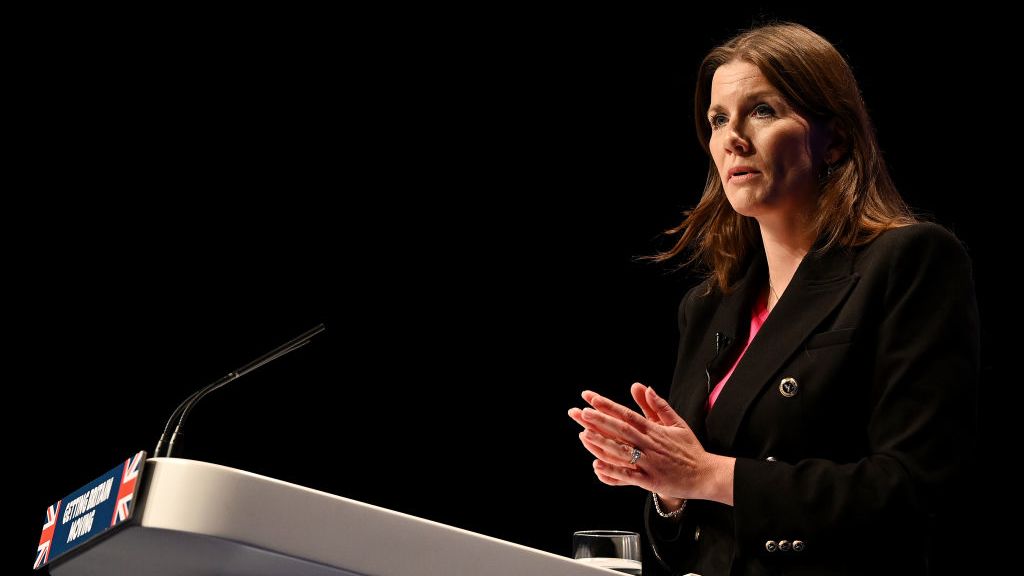Terror law reviewer: don't criminalise the internet
Expert calls on tech firms to "strain every muscle" fighting hate speech


Sign up today and you will receive a free copy of our Future Focus 2025 report - the leading guidance on AI, cybersecurity and other IT challenges as per 700+ senior executives
You are now subscribed
Your newsletter sign-up was successful
The government's own terror law reviewer has warned against criminalising the internet, contrary to frequent calls from PM Theresa May that more regulation is required to push tech firms to do more to fight extremism online.
Queen's Counsel Max Hill was named the independent reviewer of terror legislation earlier this year. His job is to ensure anti-terror laws are fit for purpose, reporting to Parliament about how they are used.
According to a Sky report, he told a conference on Terrorism and Social Media, held in Swansea, that new legal powers weren't needed to battle extremism and terror online.
"I struggle to see how it would help if our Parliament were to criminalise tech company bosses who 'don't do enough'. How do we measure 'enough'? What is the appropriate sanction?" the report cited Hill as saying. "We do not live in China, where the internet simply goes dark for millions when government so decides. Our democratic society cannot be treated that way."
Instead, he encouraged the government to work with the "companies who make eye-watering sums of money from our everyday chatter" to help with harder to see communications.
Indeed, he called for such tech companies to "strain every muscle" to stop hate speech and terror-encouraging material from spreading online, according to a Times report.
May has repeatedly called for internet firms to do more to battle online extremism, particularly targeting encryption in messaging apps such as WhatsApp. Her government has also threatened to fine companies that leave hate speech online, and pulled its own advertising from Google after its marketing messages were shown alongside extremist material.
Sign up today and you will receive a free copy of our Future Focus 2025 report - the leading guidance on AI, cybersecurity and other IT challenges as per 700+ senior executives
Tech companies including Google, Twitter and Facebook have promised to do better, with the latter introducing a UK-focused plan to tackle hate speech.
Freelance journalist Nicole Kobie first started writing for ITPro in 2007, with bylines in New Scientist, Wired, PC Pro and many more.
Nicole the author of a book about the history of technology, The Long History of the Future.
-
 Mistral CEO Arthur Mensch thinks 50% of SaaS solutions could be supplanted by AI
Mistral CEO Arthur Mensch thinks 50% of SaaS solutions could be supplanted by AINews Mensch’s comments come amidst rising concerns about the impact of AI on traditional software
-
 Westcon-Comstor and UiPath forge closer ties in EU growth drive
Westcon-Comstor and UiPath forge closer ties in EU growth driveNews The duo have announced a new pan-European distribution deal to drive services-led AI automation growth
-
 Three things you need to know about the EU Data Act ahead of this week's big compliance deadline
Three things you need to know about the EU Data Act ahead of this week's big compliance deadlineNews A host of key provisions in the EU Data Act will come into effect on 12 September, and there’s a lot for businesses to unpack.
-
 UK financial services firms are scrambling to comply with DORA regulations
UK financial services firms are scrambling to comply with DORA regulationsNews Lack of prioritization and tight implementation schedules mean many aren’t compliant
-
 What the US-China chip war means for the tech industry
What the US-China chip war means for the tech industryIn-depth With China and the West at loggerheads over semiconductors, how will this conflict reshape the tech supply chain?
-
 Former TSB CIO fined £81,000 for botched IT migration
Former TSB CIO fined £81,000 for botched IT migrationNews It’s the first penalty imposed on an individual involved in the infamous migration project
-
 Microsoft, AWS face CMA probe amid competition concerns
Microsoft, AWS face CMA probe amid competition concernsNews UK businesses could face higher fees and limited options due to hyperscaler dominance of the cloud market
-
 Online Safety Bill: Why is Ofcom being thrown under the bus?
Online Safety Bill: Why is Ofcom being thrown under the bus?Opinion The UK government has handed Ofcom an impossible mission, with the thinly spread regulator being set up to fail
-
 Can regulation shape cryptocurrencies into useful business assets?
Can regulation shape cryptocurrencies into useful business assets?In-depth Although the likes of Bitcoin may never stabilise, legitimising the crypto market could, in turn, pave the way for more widespread blockchain adoption
-
 UK gov urged to ease "tremendous" and 'unfair' costs placed on mobile network operators
UK gov urged to ease "tremendous" and 'unfair' costs placed on mobile network operatorsNews Annual licence fees, Huawei removal costs, and social media network usage were all highlighted as detrimental to telco success
